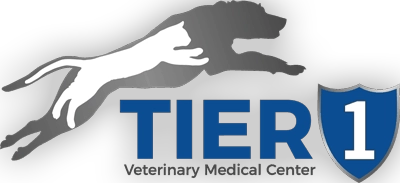Oncology Department
Understanding & Diagnosing Cancer in Pets
Cancer is common in pets and affects all breeds. It is most often diagnosed in older pets but may occur at any age. Cancer can be found in the skin, lymph nodes, blood stream, bones, and internal organs. Symptoms vary depending on the location and type of cancer but can include palpable lumps on or under the skin, poor appetite, reduced energy levels, or weight loss. Tissue biopsies, blood tests, and imaging studies are often needed to confirm a cancer diagnosis.
When your pet is first diagnosed with cancer, we will recommend various staging tests. The staging process determines the location, severity, and extent of disease. Imaging studies including x-rays, ultrasound, and CT scans are often performed for staging purposes and to plan for surgical intervention. Once staging is complete, cancer treatment may begin.
Cancer in your Pet: Not Easy to See, Always.
It can be challenging to realize the early stages of cancer in your pet.
For pet parents, nothing is more unsettling than knowing that there is something wrong with your pet primarily because they are unable to articulate what is bothering them. In Veterinary medicine, we often remind our pet parents that something can be going wrong on the "inside" that presents no apparent problems on the "outside."
This is why seeing your regular Veterinarian for wellness exams is so essential. Your Veterinarian wants to track your animal's weight, routine, and perform blood and lab work to make sure that your animal is healthy.
For this reason, many times, internal problems go unidentified by pet parents. Even for pet owners who regularly see their Veterinarian for blood work and wellness visits, knowing an animal has cancer is not easily recognizable on the surface.
However, there are some warning signs that it might be a good time to see your regular Veterinarian and have imaging and lab work done.
Does Pet Insurance Cover a Cancer Diagnosis in an Animal?
Normally yes, as long as the diagnosis was made after your pet insurance was in place.
This coverage can oftentimes help with chemotherapy treatments that many pets undergo to fight cancer.
If the diagnosis of cancer was made before having pet insurance, it will be considered a pre-existing condition.
Please review your pet insurance policy for detailed coverage information as policies vary.
Warning Signs That Your Pet May Require Medical Attention
- Appetite and Weight Loss. This is especially concerning if your animal is regularly eating, per their routine. One of the reasons that most veterinary practices have a scale right in their lobby is because we need to track your animals weight for several reasons and amongst them is to measure rapid weight gain and weight loss. This is often our first inclination that something deeper may be going on.
- Sores That Do Not Heal. If your animal has open wounds that you have treated with ointments and/or antibiotics, but they continue not to improve, you want to contact your local veterinarian.
- Lumps, Growths, and Swelling. If your animal experiences abnormal lumps, growths or swelling in any region of their body, this is a good warning sign that something below the surface is not operating as it should. One of the most avoidable mistakes that we see is when pet owners choose to "watch it" to see if the growth disappears in a few weeks rather than going in to see their veterinarian prematurely. The sooner your veterinary team can identify the cause of swelling and/or growths, the faster we can treat the problem. Waiting can cause complications.
- Smells, Discharge, and Bleeding. Maybe your canine is a bit slobbery every now and then, but for the most part, they really should not be omitting any types of offensive, regular odors, puss, blood or secretion. Same for felines, but they never drool because they're purrfect. They told us so.
- Energy and Activity Levels. If your animal has a decreased level of energy for activities they generally find enjoyable for more than a day or two, something is probably going on that warrants you seeing your veterinarian. This is particularly critical if you start to see your pet show signs of stiffness or rigid movements where it looks like the basic movement is becoming difficult.
